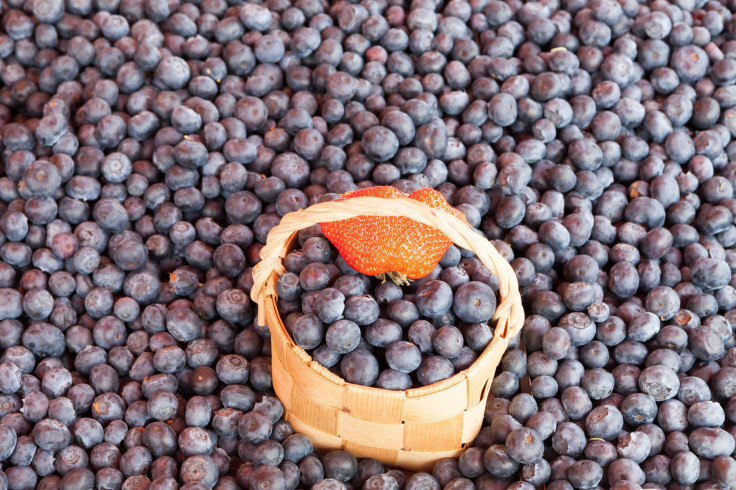Bilberries And Obesity: How Wild Blueberries Offset Negative Effects Of A High-Fat Diet

Various studies have pointed to the huge health benefits of eating blueberries, from reducing the risk of heart disease, to improving your metabolism and providing you with plenty of antioxidants to fight cancer, diabetes, and even Alzheimer’s disease. A new study just adds one more benefit to that already lengthy list: Eating wild blueberries in particular, known as “bilberries,” can help reduce the negative effects of a high-fat diet and fight obesity.
The study was conducted by researchers at the University of Eastern Finland, and found that bilberries were beneficial for improving blood pressure and nutrition-derived inflammatory responses. Low-grade inflammation as well as high blood pressure are often linked to obesity and obesity-related diseases such as diabetes. “Low-grade metabolic inflammation and hypertension are primary mechanisms involved in obesity-associated adverse health effects,” the authors wrote in the abstract. “Berries, especially Nordic wild blueberries (bilberries), represent an important source of dietary anthocyanins, a group of polyphenols with potential beneficial effects to combat obesity-associated metabolic disturbances.”
For the study, the researchers fed mice a high-fat diet for three months. Different groups of mice had diets containing either five percent or 10 percent of freeze-dried bilberries, and the researchers examined the effects, focusing particularly on inflammatory cell and cytokine levels, systolic blood pressure, glucose tolerance, insulin, and weight gain. They found that the mice placed on a high-fat diet gained more weight, and experienced negative changes in glucose and lipid metabolism, as well as higher blood pressure — of course. But the bilberries actually lowered the inflammation associated with a high-fat diet and improved their outlooks.
“Bilberries constitute an integral part of the Nordic diet and they could be better utilized also elsewhere in the world,” the University of Eastern Finland press release said. “Bilberries are associated with several beneficial health effects and their use involves plenty of traditional wisdom.”
Bilberries aren’t quite the same as blueberries. They’re native to Northern Europe and are relatives of blueberries. According to the University of Maryland Medical Center, bilberries have been used for hundreds of years in both jams and pies, and in medicine. Because they contain plant pigments called anthocyanosides, which serve as antioxidants, bilberries offset free radicals in the body and prevent damage to cells.
While the study doesn’t give you a green light to go ahead and eat a fatty diet filled with mac and cheese and hamburgers, just to devour several cups of bilberries right after, it’s comforting to know that eating certain fruits can help you out after a night of cheating on your diet.
Source: Mykkänen OT, Huotari A, Herzig K-H, et al. Wild Blueberries (Vaccinium myrtillus) Alleviate Inflammation and Hypertension Associated with Developing Obesity in Mice Fed with a High-Fat Diet. PLOS One. 2014.
Published by Medicaldaily.com



























